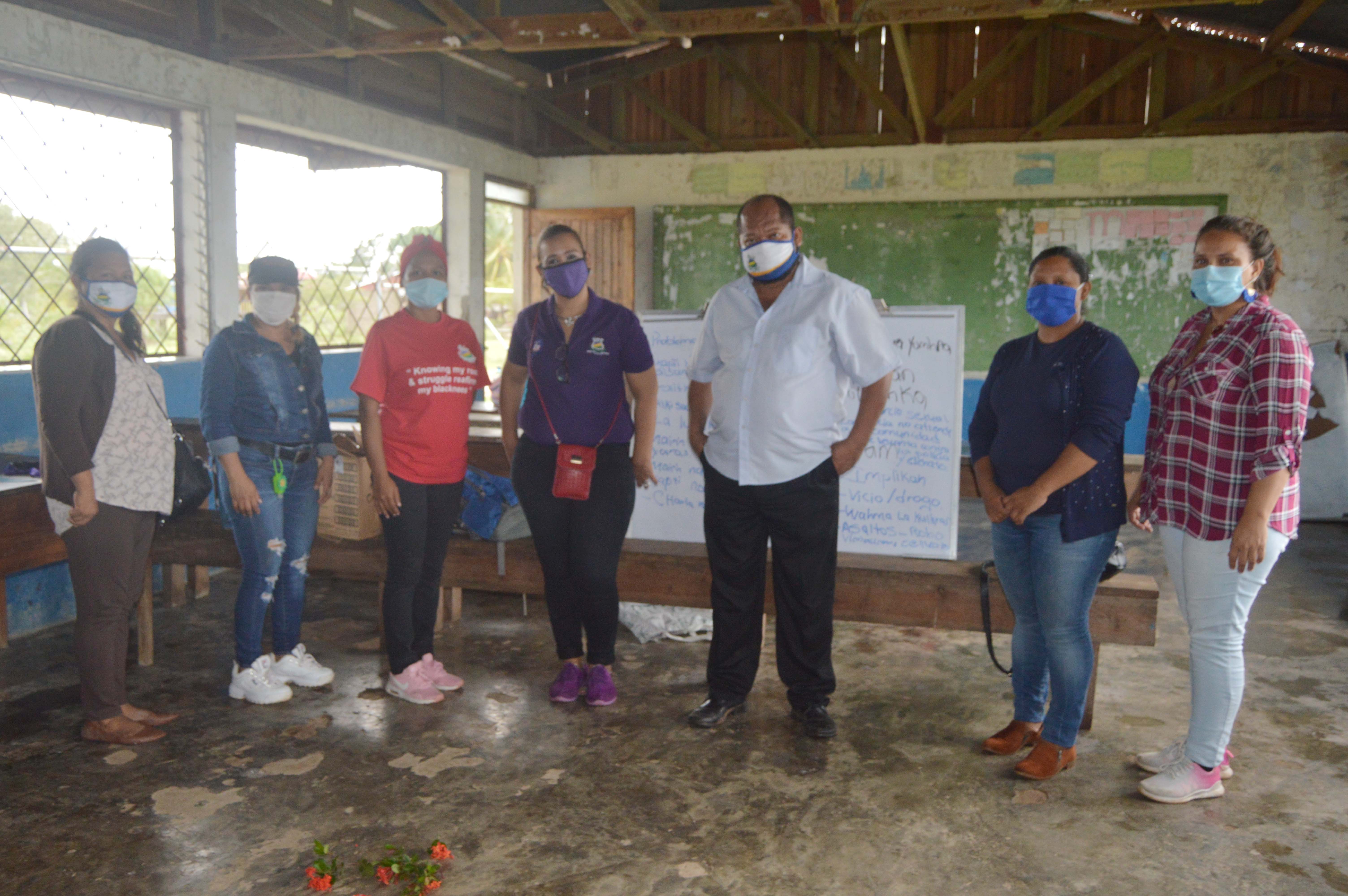
Members of the different URACCAN institutes and centres in forum with the Krukira community.
Institutes and Centers of URACCAN Bilwi venue meet with Krukira leaders and leaders
Sikla kati, pure matlakahbi yunhpa yua, Tasba aiska ra Indian Kiamba yua kulkan ba dukiara URACCAN Bilwi wina Krukira tawanka ra ta uplika nani wal aisanka brih bangwan
This Sunday, August 09, URACCAN, through the Center for Multi-Ethnic Women's Studies and Information (CEIMM), the Institute for Studies and Promotion of Autonomy (IEPA), the Institute of Linguistic Promotion and Research and Cultural Rescue (IPILC) and the Observatory of Regional Autonomy (OMR), held the Forum: "Indigenous Peoples and Actions Resilient to the COVID-19 Pandemic" , with leaders and leaders of the community of Krukira, municipality of Puerto Cabezas, to commemorate the International Day of Indigenous Peoples.
The activity involved: teacher Anny Marley, MSc. Meira Nicho, Licda. Angie Valle, MSc. Sesiah Davis, MSc. Elizabeth Solomon, Licdo. Denis Peralta and Licda. Jamilee Meissner, who through the Miskita mother tongue presented topics such as the historical overview of the International Day of Indigenous Peoples, the laws that protect indigenous peoples, and what actions should be taken for the care and protection of the community before the COVID-19 pandemic.
Promoting the rights of indigenous peoples
Teacher Anny Marley, coordinator of CEIMM-URACCAN at the Bilwi compound, stated that this activity was carried out within the framework of the project "Decolonization and Depatriaricalization for Transformation from Education", promoted by the institutes and centers of URACCAN in the Bilwi campus, and thus publicize the rights and duties of indigenous peoples, in addition to listening to their expressions on this date.
"This activity was very positive, from my assessment, because there was a lot of community involvement, it was also visualized that there was a lot of need for leaders to be heard and to be able to extend many of their concerns about situations that happen within the community," Marley said.
For her part, Teacher Elizabeth Solomon, coordinator of the IPILC-URACCAN Bilwi precinct, said that as institutes and centres "we are promoting the rights that have recognized us from 1992 to this point, and as peoples know what are the themes that have been being worked on at the United Nations level for the indigenous peoples of the world. As URACCAN we are working with indigenous peoples, because it is necessary to share what has been being worked on and promote their rights."
Ensuring the Intercultural Gender Perspective
It should be mentioned that the topics addressed in this conversation addressed the Intercultural Gender Perspective that drives URACCAN from its dialogue spaces, with community leaders and leaders. This knows the laws that protect women and how rights and duties should be strengthened from communities.
In this sense, the Bolstran Morris Rivera community expressed that such conversations are important for communities, because in this way they can expose their problems, in addition to knowing some rights of their own. "Some women didn't know their rights, but now they know what their rights are and how to live with society, in this community, with our people," Morris concluded.
- Log in to post comments
- 48 views
